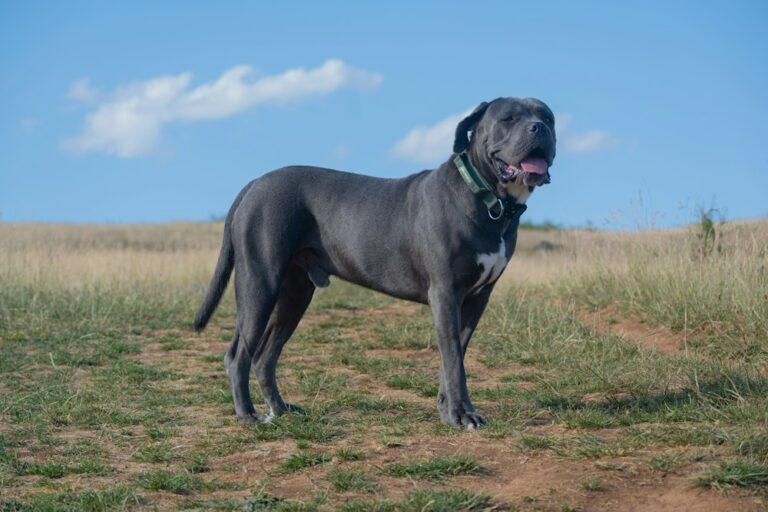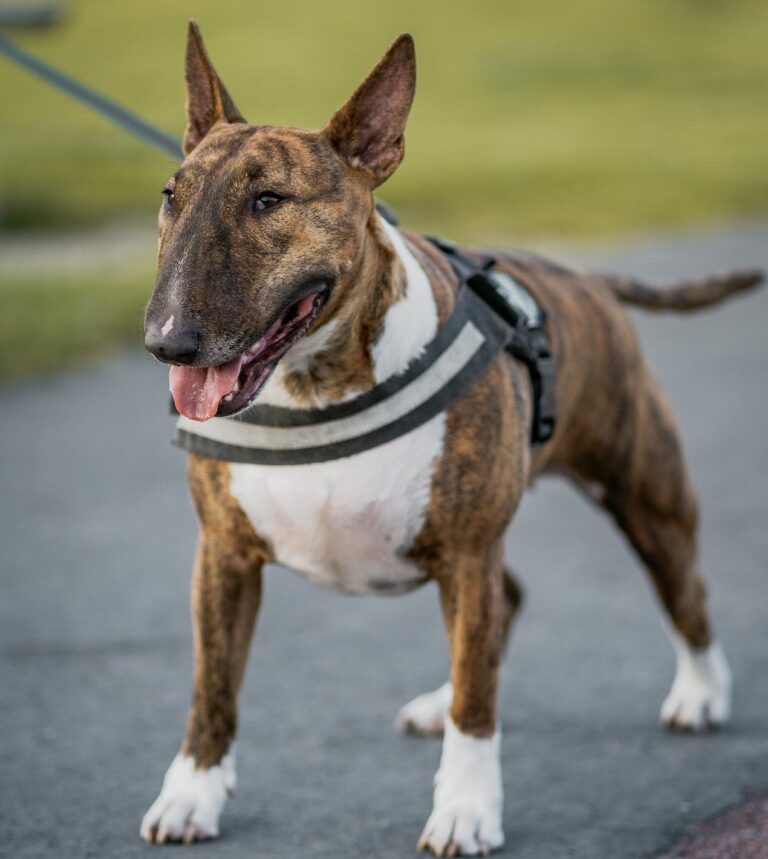The West Highland White Terrier, or Westie, is a small and strong dog with a white coat. Originally from Scotland, they were bred to hunt small animals. Westies are friendly, confident, and smart, making them great pets. They need regular grooming to keep their coat clean and plenty of exercise to stay happy. Westies are loving and loyal, perfect for both active people and families.
History of West Highland White Terriers
Origin of West Highland White Terriers
The West Highland White Terrier, also known as Westie, is a lively and affectionate dog breed originating from Scotland. Its roots can be traced back to the 17th century when the breed was developed to serve as a small game hunting dog.
Development of the Breed
The West Highland White Terrier was selectively bred from Cairn Terriers, a breed known for its tenacity and ability to dig into the ground to pursue prey. The goal was to create a small, white-coated terrier that could easily be distinguished from other dogs during hunting expeditions. Over time, breeders focused on refining the breed’s physical characteristics and temperament.
Popularity and Recognition
In the early 20th century, West Highland White Terriers gained popularity beyond their initial purpose as hunting dogs. Their friendly nature, intelligence, and adaptability made them excellent companions for families and individuals alike. The breed’s distinctive white coat, coupled with its lively and loving personality, has made it a favorite among dog enthusiasts worldwide.
The West Highland White Terrier received recognition from various kennel clubs and breed associations. In 1907, the breed was officially recognized by the Kennel Club in the United Kingdom. Since then, it has gained recognition from major kennel clubs globally, including the American Kennel Club (AKC) in 1908. Today, West Highland White Terriers participate in various dog shows and competitions, showcasing their unique attributes and charm.
The history of West Highland White Terriers is a testament to their enduring appeal as both working dogs and beloved companions. Their origin as hunting dogs and subsequent development into a popular breed highlights their versatility and ability to adapt to different environments. Whether in the field or the home, Westies continue to bring joy and companionship to countless individuals and families around the world.
Characteristics and Appearance
Physical Attributes
West Highland White Terriers, also known as Westies, are small and sturdy dogs with a distinctive appearance. They have a compact and muscular body, standing about 10-11 inches tall at the shoulder and weighing around 15-20 pounds. Despite their small size, Westies are known for their robust and energetic nature.
These terriers have a well-balanced and proportionate body. They have a deep chest and a level topline, giving them a strong and confident stance. Their legs are straight and muscular, allowing them to move with agility and grace. Westies have a broad and slightly domed skull, with a well-defined stop. Their dark, almond-shaped eyes are full of intelligence and curiosity, reflecting their lively nature.
One of the most distinctive features of West Highland White Terriers is their erect, pointed ears. These ears are set wide apart and stand straight up, giving them a keen and alert expression. Their muzzles are moderately short, with a strong jaw and a black nose. Westies have a set of sharp, white teeth that form a scissor bite, enabling them to easily chew through their favorite toys and treats.
Coat and Grooming
The West Highland White Terrier’s coat is another standout feature. Their double coat consists of a dense, harsh outer coat and a soft, dense undercoat. This combination provides excellent protection from the elements, making them well-suited for their Scottish origins. The outer coat is straight and wiry, while the undercoat provides insulation and warmth.
To maintain their pristine white appearance, Westies require regular grooming. Their coat should be brushed a few times a week to prevent matting and remove loose hair. Occasional hand-stripping, a technique that involves plucking out dead hairs, helps maintain the texture and color of the coat. Regular bathing is also necessary to keep their coat clean and healthy.
Temperament and Personality
West Highland White Terriers are renowned for their lively and loving temperament. They are known to be friendly, confident, and full of spunk. With their high energy levels and playful nature, Westies make great companions for families and individuals alike.
These terriers are intelligent and independent thinkers, which can sometimes result in a stubborn streak. Early and consistent training is important to establish boundaries and ensure they grow into well-behaved adult dogs. Despite their occasional stubbornness, Westies are generally eager to please and respond well to positive reinforcement training methods.
West Highland White Terriers are also known for their loyalty and affection towards their families. They thrive on human companionship and enjoy being part of the family activities. They make excellent watchdogs, alerting their owners to any potential danger with their sharp barks.
In conclusion, West Highland White Terriers possess distinctive physical attributes, including their compact and muscular bodies, pointed ears, and expressive eyes. Their double coat requires regular grooming to maintain its white and wiry appearance. These lively and loving terriers have an energetic temperament and a strong bond with their families, making them delightful companions for those seeking an active and affectionate four-legged friend.
Training and Exercise
Training Tips
When it comes to training West Highland White Terriers, consistency and positive reinforcement are key. These intelligent and independent dogs require a firm yet gentle approach to training. Here are some helpful tips to ensure successful training sessions with your Westie:
- Start early: Begin training your Westie as soon as you bring them home. Puppies are like sponges, making it easier for them to grasp new commands and behaviors.
- Use positive reinforcement: Westies respond well to praise, treats, and rewards. Use these incentives to reinforce good behavior and encourage them to follow commands.
- Be patient and consistent: Westies can be stubborn at times, so patience is crucial. Consistency in your training methods and expectations will help them understand what is expected of them.
- Keep training sessions short and fun: Westies have a short attention span, so keep training sessions brief and engaging. Incorporate play and interactive exercises to make learning enjoyable for both you and your furry friend.
- Socialize your Westie: Expose your West Highland White Terrier to a variety of people, animals, and environments from an early age. This will help them develop good social skills and prevent any potential behavioral issues.
Exercise Needs
Although Westies are small in size, they have a moderate exercise requirement. Regular physical activity is essential for their overall health and well-being. Here are some important points to consider when it comes to meeting your Westie’s exercise needs:
- Daily walks: Take your Westie for daily walks to provide them with mental stimulation and physical exercise. Aim for at least 30 minutes of brisk walking to keep them active and maintain their muscle tone.
- Interactive playtime: Engage your Westie in interactive play sessions to keep them mentally and physically stimulated. Whether it’s a game of fetch, tug-of-war, or puzzle toys, these activities will help burn off their excess energy.
- Mental stimulation: In addition to physical exercise, Westies also require mental stimulation. Incorporate training sessions, puzzle toys, and interactive games to challenge their intelligence and prevent boredom.
- Consider their age and health: Adjust the intensity and duration of exercise based on your Westie’s age and health condition. Puppies may have shorter bursts of playtime, while older dogs may require gentler exercises.
Socialization and Obedience
Socialization and obedience training are vital for West Highland White Terriers to become well-rounded and well-behaved companions. Here’s why they are important and how you can ensure your Westie receives proper socialization and obedience training:
- Prevent behavioral issues: Proper socialization from an early age helps prevent behavioral problems such as fearfulness, aggression, and anxiety. Exposing your Westie to different people, animals, and environments will help them feel more comfortable and confident in various situations.
- Enroll in puppy classes: Puppy classes provide a structured environment for your Westie to socialize with other dogs and learn basic obedience commands. These classes also offer guidance and support from professional trainers.
- Positive reinforcement: Use positive reinforcement techniques to reinforce good behavior and obedience. Reward your Westie with treats, praise, and affection when they follow commands or exhibit desirable behavior.
- Consistency and patience: Consistency is crucial in obedience training. Practice commands regularly and be patient with your Westie as they learn. Remember to keep training sessions positive and enjoyable to encourage their cooperation.
By following these training tips, meeting their exercise needs, and providing proper socialization and obedience training, you can ensure that your West Highland White Terrier grows up to be a well-trained and happy companion.
Health and Care
Common Health Issues
West Highland White Terriers, also known as Westies, are generally a healthy breed with a life expectancy of around 12 to 16 years. However, like any other dog breed, they are susceptible to certain health issues. By being aware of these common health problems, Westie owners can take proactive steps to ensure the well-being of their beloved pets.
One of the most common health issues in Westies is skin allergies. These allergies can be caused by various factors such as food ingredients, environmental allergens, or even certain grooming products. It is important to keep an eye out for any signs of itching, redness, or skin irritation in your Westie. If you suspect an allergy, consult with your veterinarian for proper diagnosis and treatment options.
Another common health concern in West Highland White Terriers is dental disease. Due to their small size and compact jaw, Westies are prone to dental problems such as tartar buildup, gum disease, and tooth decay. Regular dental care, including brushing their teeth and providing appropriate dental treats, can help prevent these issues. Additionally, scheduling regular professional dental cleanings with your vet is crucial for maintaining your Westie’s oral health.
Patellar luxation, a condition where the kneecap slips out of place, is another health issue that can affect Westies. This condition can lead to discomfort and lameness in the affected leg. Although patellar luxation can be hereditary, it can also be caused by injury or obesity. Regular exercise to maintain a healthy weight, as well as avoiding excessive jumping or activities that strain the joints, can help reduce the risk of patellar luxation in your Westie.
Nutrition and Diet
Providing a well-balanced and nutritious diet is essential for the overall health and well-being of your West Highland White Terrier. High-quality dog food that is specifically formulated for small breeds is recommended for Westies. Look for dog food that lists real meat as the first ingredient, as it provides essential proteins and amino acids for your Westie’s muscle development.
It is important to avoid overfeeding your Westie, as they have a tendency to gain weight easily. Obesity can lead to various health issues, including joint problems and heart disease. Follow the feeding guidelines provided by the dog food manufacturer and monitor your Westie’s weight regularly. If you notice any weight gain, consider adjusting the portion size or switching to a weight management formula with your vet’s guidance.
In addition to a balanced diet, fresh water should always be available for your Westie. Proper hydration is crucial for their overall health and helps maintain their coat and skin condition.
Regular Vet Check-ups
Regular veterinary check-ups are vital to ensure the ongoing health and well-being of your West Highland White Terrier. Your vet can perform a comprehensive physical examination, administer necessary vaccinations, and provide preventive treatments for parasites such as fleas and ticks.
During these check-ups, your vet will also be able to detect any early signs of potential health issues and provide appropriate treatment before they worsen. Routine blood tests and screenings may be recommended to monitor your Westie’s overall health, including organ function and early detection of potential diseases.
Remember to discuss any concerns or changes in your Westie’s behavior or health with your vet during these check-ups. By maintaining regular vet appointments, you can help your Westie live a long and healthy life.
Breeding Facts for West Highland White Terriers
- Breeding Age: Female Westies should be bred after they are 2 years old but not after they turn 6.
- Litter Size: A typical litter has 3-5 puppies.
- Health Testing: Breeders test for common health problems like hip issues and skin problems to ensure healthy puppies.
- Coat Color: Westies are always white. Breeding two white-coated Westies keeps this trait.
- Breed Standards: Breeders follow rules set by groups like the American Kennel Club (AKC) to keep the breed healthy and true to type.
- Breeding Frequency: It’s best not to breed female Westies in every heat cycle. They need time to recover between pregnancies.
- Temperament: Breeders choose dogs with friendly and confident personalities to keep the typical Westie traits.
- Ethical Breeding: Good breeders provide a clean and safe environment, proper vet care, and socialize the puppies before they go to new homes.







